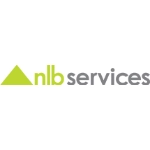© 2026 Next Level Business Services Inc. All Rights Reserved.
India’s GCC Talent Trends & Workforce Evolution in 2025
By NLB Services
India’s Global Capability Centers are witnessing a transformational shift. In 2025, they’re no longer tucked behind the curtain as cost-saving centers. Instead, they’re stepping into bold, strategic roles that shape innovation for organizations across the globe. This evolution is powered by talent, not just having it, but knowing how to nurture it. With the AI race and employee expectations rising, success for GCCs in India lies in finding people with sharp skills and empathetic leadership, building teams that feel both challenged and cared for. Challenging dynamics have proven that it is not just about hiring smarter but also about creating workplaces where people thrive, grow, and lead the charge into what’s next.
At the core of this transformation is a deliberate focus on adaptability. As GCCs in India take on more complex functions like product development, digital transformation, and cybersecurity, they need talent that’s agile, inspired, and supported. Companies that get this right aren’t just keeping pace with the change; they’re setting it. In this blog, we will explore hiring trends and strategies that are shaping India’s GCC Workforce evolution in 2025.
Top Recruitment & Hiring Trends for GCCs in 2025
With numerous ongoing advancements and technological innovation, the hiring and recruitment landscape for GCCs in India is undergoing a prominent shift. Let’s see the top hiring and recruitment trends that are in focus in 2025.
AI in Recruitment: Predictive Hiring Tools and Automation
AI is no longer a concept in recruitment; it is now a reality for GCCs. AI-powered tools are revolutionizing the recruitment process. It is involved in candidate sourcing, screening, and predictive analysis, making the tasks of HR easier, error-free, and efficient. These tools are able to analyze vast amounts of data to identify ideal candidate profiles, automate routine tasks like resume parsing and initial interviews, and even going once step further by predicting candidate success and retention rates. This allows recruiters to focus on strategic initiatives, enhance candidate experience, and make data-driven hiring decisions, ultimately leading to more efficient and effective talent acquisition for GCCs.
Demand for Specialized Skills (AI, Data Science, Cybersecurity)
As GCCs in India emerge as value-driving entities amid exposure to new technologies, the demand for specialized skills is also soaring. Though core tech skills remain foundational, there’s a pronounced surge in the need for professionals in:
- Artificial Intelligence (AI) and Machine Learning (ML): From AI model training to integrating AI into core business operations, these skills are critical for driving innovation and integrating Artificial Intelligence into different business functions.
- Data Science and Analytics: The ability to derive actionable insights from complex data sets is an essential skill, and as the industry requires more of better planning and strategy, these skills become imperative for informed decision-making and strategic growth.
- Cybersecurity: With ever-increasing digital interconnectedness and risks that it brings, robust cybersecurity expertise is vital to protect sensitive data and infrastructure.
- Cloud and DevOps: As organizations continue their cloud migration journeys, professionals skilled in cloud architecture and DevOps practices are highly sought after.
This shows a deeper trend among the industry: GCCs are no longer merely cost-saving centers, but critical to global business strategy, seeking talent that can own products, drive innovation, and ensure regulatory resilience across markets.
Remote Work Recruitment: How GCCs are Hiring in a Hybrid World
The accelerated adoption of remote and hybrid work models since the pandemic has slowed down every year, but many GCCs are adapting their recruitment strategies accordingly. While some organizations are shifting from entirely virtual to hybrid hiring approaches, the flexibility offered by remote work remains a key attraction for talent acquisition for GCCs.
GCCs are leveraging technology to conduct virtual interviews, assessments, and onboarding processes, enabling them to tap into a wider talent pool beyond traditional metropolitan hubs, including Tier-II and Tier-III cities. The focus is on building resilient talent strategies for a flexible, digital-first world, acknowledging that hybrid work, alongside the gig economy, will continue to shape the future of work.
Skill Gaps & Talent Demand: What GCCs Are Looking For
Though India has a vast talent pool, GCCs face challenges in bridging specific skill gaps and meeting the escalating demand for specialized expertise.
Upskilling: Bridging Skill Gaps through L&D Programs
The swift evolution of technology means that existing skill sets can quickly become obsolete. To counter this, GCCs need to consistently invest in robust Learning and Development (L&D) programs. This aims to reskill and upskill their existing workforce in emerging technologies like AI, cloud computing, and advanced analytics.
Organizations’ commitment to continuous learning is vital for maintaining a future-ready workforce and ensuring that employees remain relevant in a highly competitive and dynamic market. In-demand skill clusters include Cloud and DevOps, AI/ML tools and Python, product thinking and agile delivery, and international regulatory and compliance frameworks, alongside critical soft skills like collaboration and problem-solving.
Employee Retention: Retaining Top Talent in a Competitive Market
Another challenge that GCCs face is high employee turnover; retaining top talent remains a significant challenge for GCCs in India, with studies indicating a high intent among professionals to explore new job opportunities. The competition for specialized digital skills is fierce, and compensation alone is often insufficient for retention. GCCs need to increasingly focus on creating clear upskilling and reskilling pathways, fostering a strong workplace culture, offering flexible work options, and aligning career opportunities with the aspirations of mid-to-senior-level professionals.
Workforce Engagement & Retention Strategies
Beyond compensation and traditional benefits, GCCs are implementing comprehensive strategies to enhance employee engagement and foster long-term retention as part of the bigger workforce evolution. Ranging from personalized career development paths and wellness initiatives to DEI-driven culture building, flexible work models, and purpose-driven leadership, Studies suggest that 52% of GCc employees are actively exploring new job opportunities. These strategies are important in order to retain the highly talented workforce and resources.
Hybrid Work Models
Hybrid work models are becoming the new standard for GCCs, requiring a re-evaluation of traditional office structures and work processes. This involves providing employees with the flexibility to work from both office and remote locations, while ensuring seamless collaboration and productivity.
Strong Employee Value Proposition (EVP)
GCCs are crafting compelling employee value propositions that showcase global exposure, career growth, and purpose-driven work. When employees feel valued and see the value at work, they stick with the GCCs for long.
Culture of Innovation
Alongside purpose and growth, GCCs are cultivating innovation as a core cultural pillar. They’ve transitioned from process-driven execution hubs to agile innovation centers where employees contribute directly to transformation. Through intrapreneurship programs, employees are empowered to pitch ideas and build prototypes. Fail-fast environments are encouraged, where experimentation is celebrated. Partnerships with startups and academia fuel co-creation, while leadership KPIs now reflect innovation outcomes to ensure it’s more than just a buzzword. These centers are not just operational—they’re inventive playgrounds for the future of work.
Leadership & Mentorship Programs
Leadership development is also becoming deeply experiential. GCCs are deploying structured mentorship ecosystems that connect high-potential talent with seasoned leaders across functions and geographies. Leadership academies help build strategic agility, emotional intelligence, and cross-cultural fluency, all vital in matrixed global setups. Succession planning and internal mobility ensure that knowledge stays within the organization while giving employees long-term visibility into their career paths.
Work-Life Balance & Wellness
Employee wellness is treated as a strategic imperative rather than a perk. The hybrid model is designed for balance with satellite offices for collaboration and ergonomic setups at home. Mental health support includes access to counselors, burnout workshops, and mindfulness resources.
Recognition & Rewards
Recognition in modern GCCs is moving from ceremonial applause to real-time, personalized appreciation. Peer-to-peer platforms allow colleagues to celebrate each other’s contributions in everyday workflows. Rewards are increasingly non-monetary, ranging from skill-building sabbaticals to purpose-based awards for community impact. External benchmarking, such as EY and NASSCOM awards, also validates excellence and inspires a high-performance culture.
Diversity, Equity & Inclusion (DEI)
Diversity, equity, and inclusion (DEI) are now seen as vital business enablers rather than compliance checkboxes. GCCs are leading efforts with intersectional hiring that includes gender, generational, and neurodiverse representation. Programs like returnships for women re-entering the workforce are gaining traction, and inclusive leadership pipelines are backed by data-driven DEI KPIs.
Learning & Development (L&D)
Learning and development (L&D) has become smarter, faster, and deeply personalized. AI-enabled platforms tailor learning journeys to each role and skill level. GCCs run leadership bootcamps and certification hubs that align with emerging business needs, from AI fluency and cybersecurity to ESG and sustainable innovation. L&D is no longer just about retention—it’s a business growth engine.
The Role of Upskilling & Future-Ready Talent Development
As the business landscape transforms, upskilling and future-ready talent development have become core to GCC competitiveness, sustainability, and innovation.
Training Programs GCCs Are Investing In
GCCs are investing considerably in a variety of training programs to equip their workforce with the skills needed to execute tasks effectively and get future-ready. These include:
- Technical Skill Enhancement: Focused training on AI/ML, Data Science, Cloud Computing, Cybersecurity, and other in-demand technologies.
- Leadership Development Programs: Nurturing future leaders who can navigate complex global environments and drive innovation.
- Soft Skill Development: Programs on critical thinking, problem-solving, communication, collaboration, and adaptability.
- Certifications and Specializations: Supporting employees in acquiring industry-recognized certifications that enhance their expertise.
- Cross-Functional Training: Encouraging employees to develop skills across different domains to foster versatility and a holistic understanding of business operations.
Case Study on Successful Workforce Transformation
Real-world examples highlight the impact of strategic talent development. NLB Services, a global workforce transformation company in the GCC space, has played a significant role in enabling successful workforce transformation for GCCs in India.
- How NLB Services helped a leading IT company set up its captive unit in Delhi NCR while keeping the talent cost under control: This case demonstrates the ability to identify and onboard the right talent efficiently, optimizing costs while ensuring access to a skilled workforce. This approach is critical for GCCs seeking to scale operations while maintaining financial viability.
- How NLB Services helped a leading US-based data company enter the Indian market through an offshore model: This showcases the strategic advantage of leveraging India’s talent pool through an offshore model, providing access to specialized data expertise and enabling market entry for global companies. Such partnerships are instrumental in building robust, future-ready teams.
These examples underscore how strategic talent acquisition for GCCs and development, often supported by expert partners, can drive significant business outcomes for GCCs. For more case studies, click here.
Conclusion
The year 2025 is a pivotal chapter for Global Capability Centers in India. We’ve seen a clear shift from mere cost optimization to strategic innovation, driven by a dynamic interplay of talent trends and workforce evolution. The ongoing hike in demand for specialized skills in AI, Data Science, and Cybersecurity, coupled with the widespread adoption of hybrid work models and AI-powered recruitment tools, is reshaping how GCCs operate and grow in India.
To thrive in this competitive landscape, GCCs in India must prioritize proactive upskilling and reskilling initiatives, invest in comprehensive employee well-being programs, and foster cultures of engagement and continuous learning.
As India solidifies its position as a global GCC hub, understanding these trends is paramount for businesses and recruiters alike. For a deeper dive into the detailed insights and actionable strategies shaping the future of talent in India’s GCC ecosystem, we invite you to explore our comprehensive India Talent GCC Report. Discover how your organization can navigate these exciting changes and leverage India’s unparalleled talent pool for sustained success.
Talent Solutions








